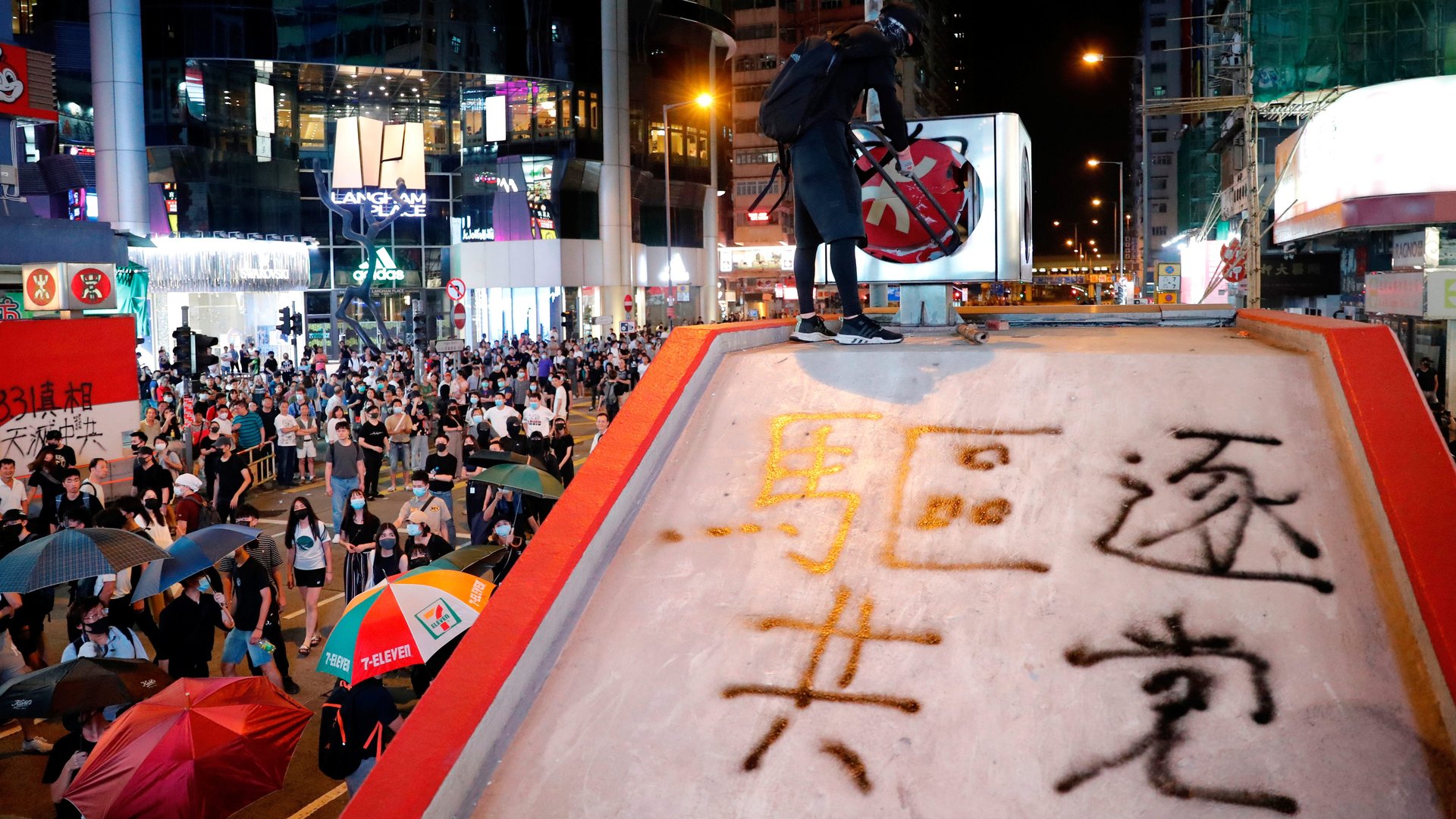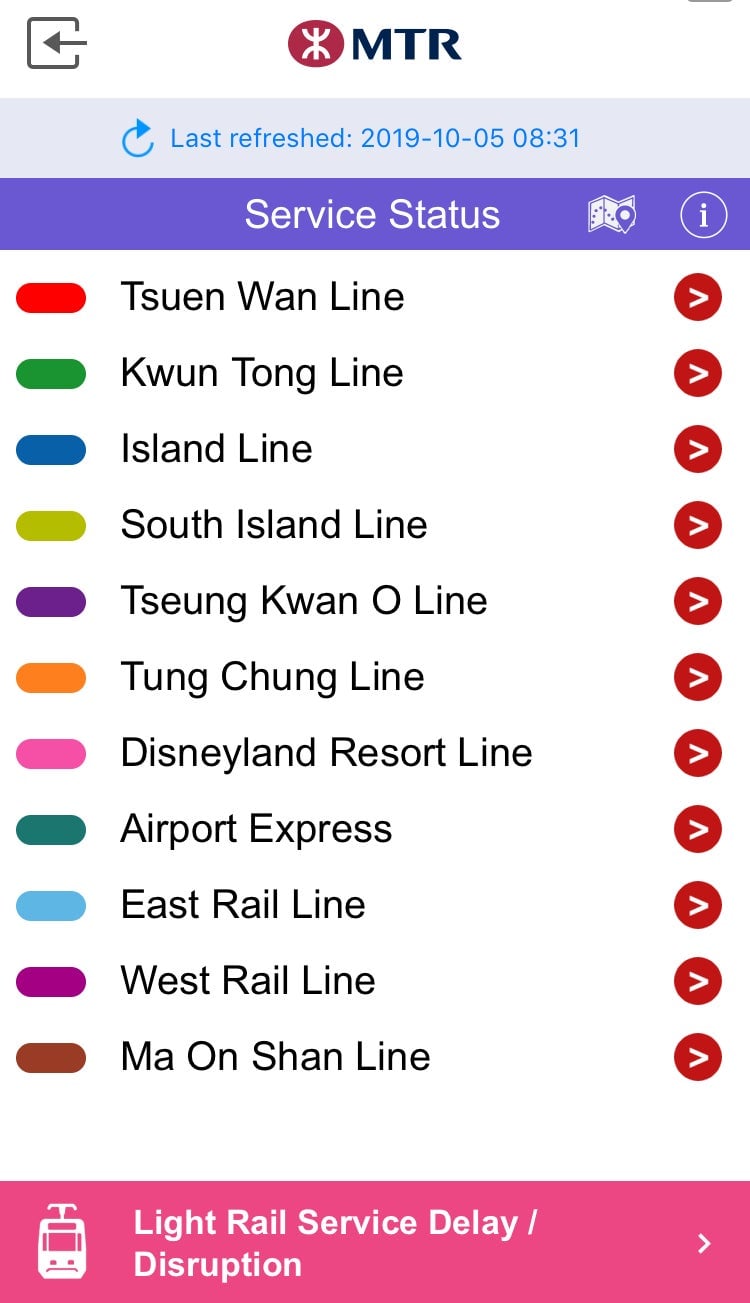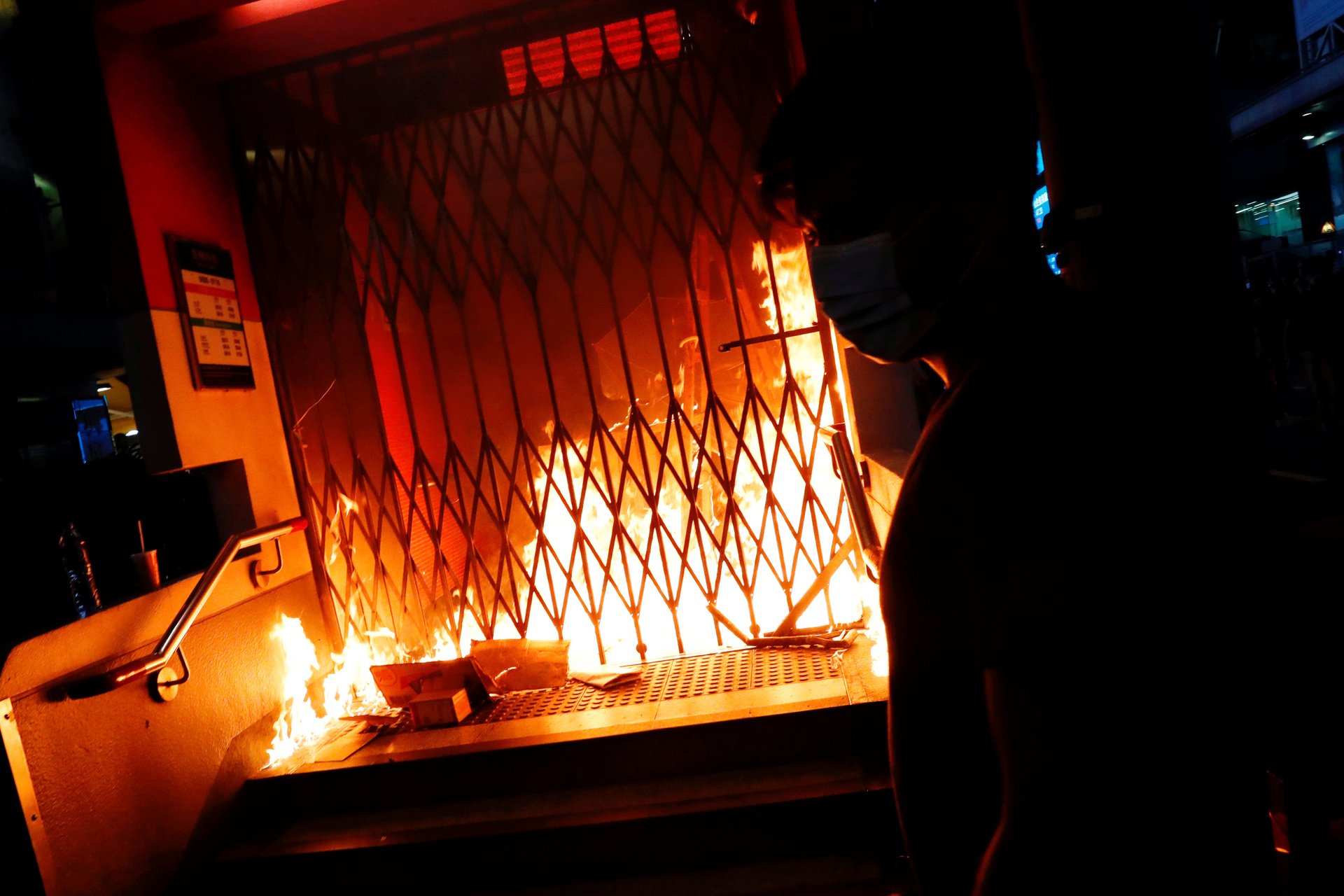Hong Kong is shutting down as a new anti-mask law deepens anger
Every single one of Hong Kong’s 11 subway lines is closed today (Oct. 5), including those serving the airport and Disneyland, an unprecedented move in a city known for its world-class subway system. Many banks and major supermarkets also won’t open today. (Update: The Airport Express resumed services at 2:30pm local time, running directly between Hong Kong station and the airport.)


Every single one of Hong Kong’s 11 subway lines is closed today (Oct. 5), including those serving the airport and Disneyland, an unprecedented move in a city known for its world-class subway system. Many banks and major supermarkets also won’t open today. (Update: The Airport Express resumed services at 2:30pm local time, running directly between Hong Kong station and the airport.)

Mass Transit Railway (MTR) trains were initially suspended last night as protesters angered by the city’s first use of emergency powers in 50 years gathered in different parts of the city, setting fires in multiple metro stations. In one protest in the city’s Yuen Long area, a Hong Kong off-duty police officer shot a 14-year-old in the leg after being surrounded by protesters. The teen was sent to hospital for surgery, while protesters beat the cop and hurled a petrol bomb at him after the shooting, according to online news outlet Hong Kong Free Press. It was the second shooting of a protester after an 18-year-old school student was shot in the chest earlier in the week, but survived the injury.
Hong Kong’s leader Carrie Lam announced the decision to use the city’s 1922 Emergency Regulations Ordinance yesterday (Oct. 4) to ban masks at all protests because of the city’s “serious state of public danger.” It was the city’s first use of emergency powers in 50 years, and prompted widespread concern this could be a case of testing the waters to pave the way for more expansive use of the rules, which allow the chief executive to bypass the Legislative Council and make laws in consultation with the Executive Council, the cabinet. A court last night declined to issue an injunction against the mask ban. In a pre-recorded video statement on Saturday, Lam said the “dark hours” of Friday underscored the need for the anti-mask ban.
It’s unclear that the ban will restore calm, as Lam hopes, as there are calls for people to turn out to the streets again over the weekend.
One soft-spoken 18-year-old school student, who was out last night shouting protest slogans in unison with others on a pedestrian bridge in the Central business district, said it was his first time at a protest because he had been scared before. But now, he said, he felt he had to do something. He said his parents knew he was out, and had told him to be careful.
“It isn’t fair,” he said through a medical mask. “The police do so many bad things. Even though I might get arrested, I want to fight for Hong Kong.”
Hong Kong’s MTR typically sees an average of 4.5 million trips a day, and is a lifeline for the city. Initially, it was a lifeline for protests too, as black-clad participants took it to get to far-flung protest sites, or carried out short disruptions at stations as a protest. But it’s become a prominent target of protester resentment after it began suspending service to stations near some planned protests in the wake of an editorial in China’s state-run People’s Daily newspaper criticizing the train system as an “accomplice” to protesters.
Vandalism of MTR stations, including flooding them, breaking ticket machines and access gates, and throwing petrol bombs inside them increased dramatically after police chased and beat protesters in Prince Edward station on Aug. 31, and as service outages widened in September. As many as 83 of 94 subway stations have faced vandalism, as have a number of light-rail stations, the MTR’s director of operations said at a press conference yesterday. He evaded a question about whether the train operator was acting in response to pressure from Beijing.
Some protesters last night also blocked the movement of emergency vehicles, such as fire engines, for brief periods—a change from earlier protests when massive crowds would manage to clear the way for a passing ambulance. Others vandalized restaurants on protest boycott lists, with one Starbucks ransacked and a fire set at another one in the Hong Kong’s Causeway Bay shopping district. Protesters have been critical of Maxim’s, the restaurant chant that operates Starbucks in Hong Kong, after the founder’s daughter criticized “radical protesters” at a UN rights meeting.

After previous late-night suspensions, train service has resumed mostly normally the next day. This is the first time the MTR has been entirely shut down in the daytime since the city’s protests started in June, in opposition to a proposed bill that would have allowed people from Hong Kong to be sent to the mainland to face trial. A citywide suspension didn’t happen even on Oct. 1, China’s National Day, when widespread protests and clashes were expected.
It’s not just the MTR. Many major banks have said they won’t be offering services today—some branches posted signs on their windows last night saying those locations wouldn’t be offering service until further notice. The city’s major ParknShop grocery chain also won’t be open today. Malls and restaurants shut early last night amid a sense of unease across the city, and some supermarkets saw their shelves cleared.